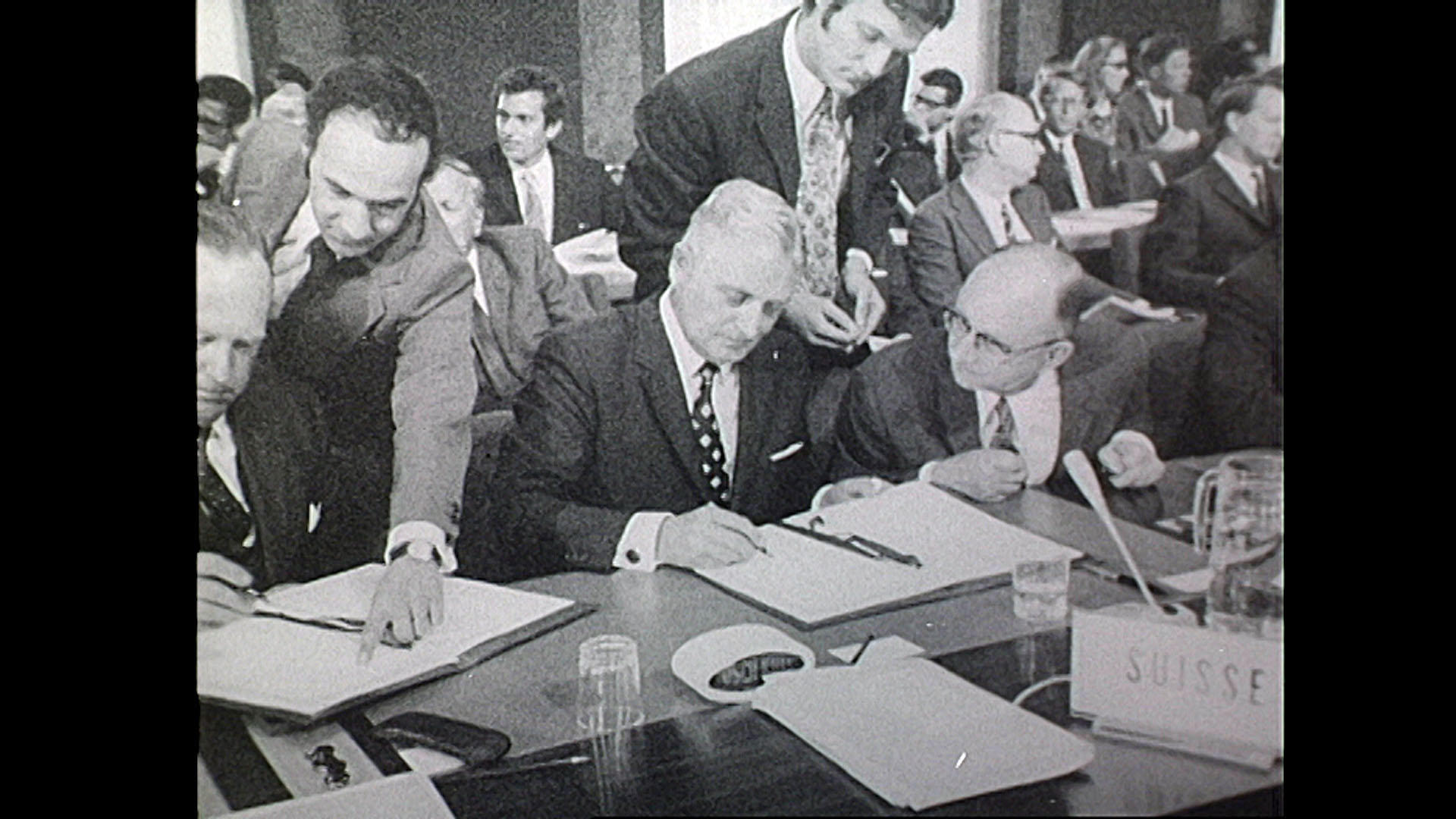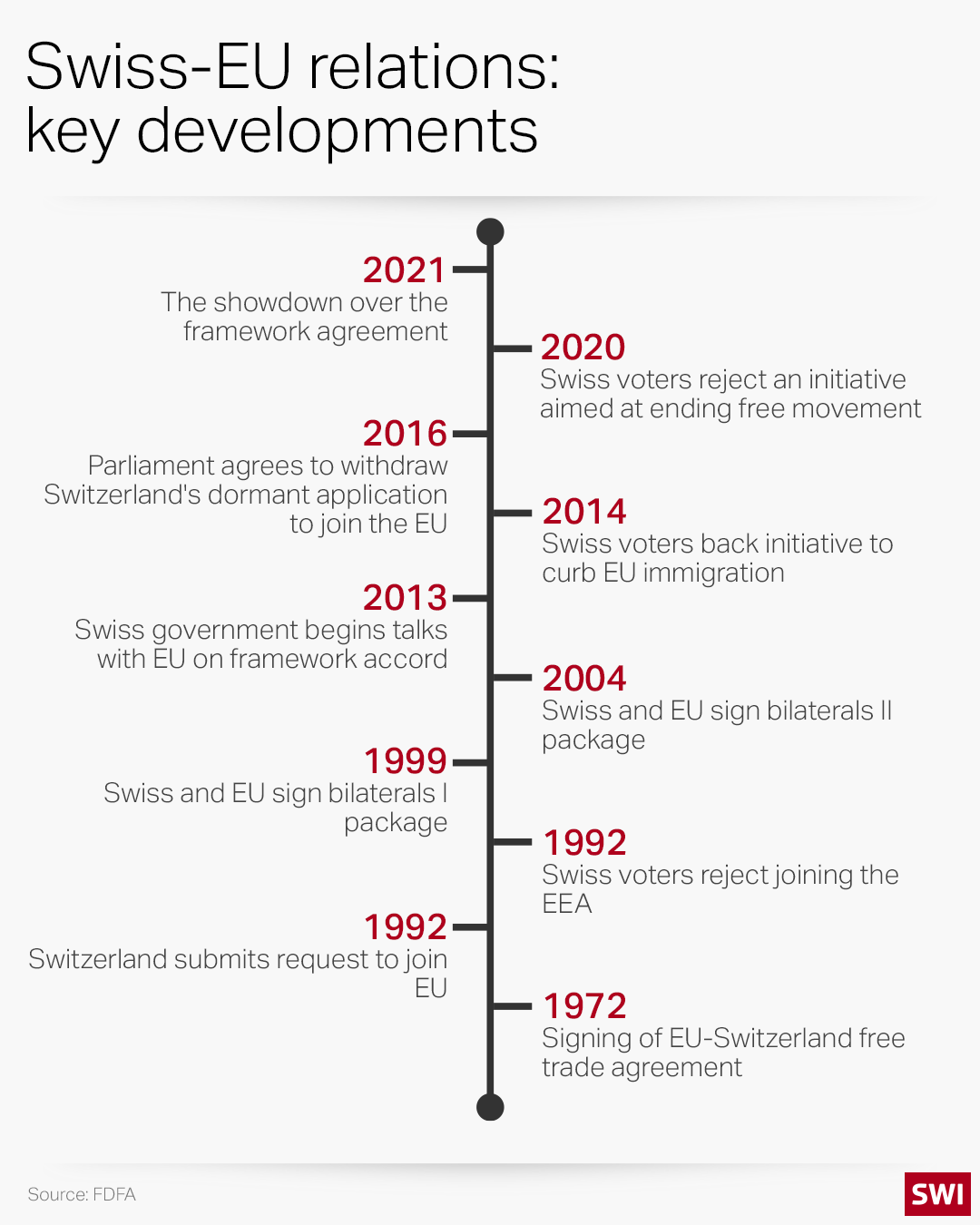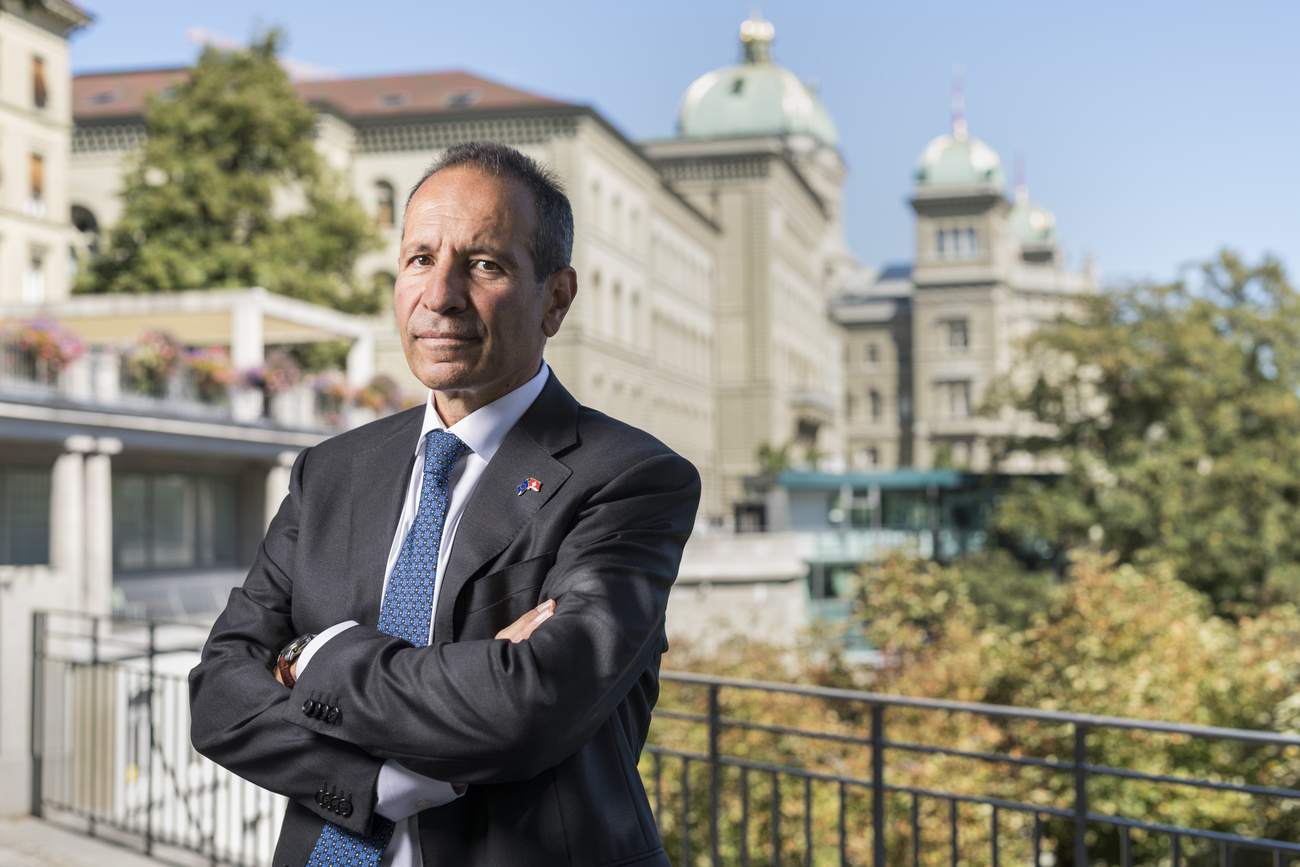Will the EU and Switzerland finally agree on a framework deal?

Brussels wants Bern to sign an institutional “framework agreement” aimed at simplifying ties between the two sides. Bern is dragging its feet and lacks internal consensus. Swiss President Guy Parmelin is flying to Brussels on April 23 to find a way out of the impasse. What is at stake?
As a non-member of the European Union, Switzerland’s relations with the 27-member bloc are governed by a patchwork of 120 bilateral accords, which give it many benefits of membership. The EU would like to formalise future ties and institutional issues in an overarching framework agreement.
Swiss and EU officials negotiated a draft framework deal between 2014 and 2018. Brussels would like Bern to sign the treaty, but it has languished as the Swiss government decided to carry out consultations with domestic partners to forge consensus on how to proceed. The consultation process has led to three sticking points which the Swiss say require clarification:
- Wage protection: unions and businesses want to protect the high salaries and cost of living in Switzerland. They say the framework agreement would lead to “wage dumping”, companies in Switzerland cutting back on salaries.
- State aid: the EU is not in favour of public subsidies. Swiss cantons fear that their banks would no longer be able to benefit from unrestricted state guarantees.
- European citizenship directive: under the framework, EU citizens in Switzerland would have the same right to social security as Swiss residents. Critics in Switzerland fear that this could result in a wave of “social welfare immigration”.
Under pressure, the Federal Council (executive body) has tried to renegotiate these three issues. The EU has indicated that it is prepared to discuss them and provide “clarifications” but it rules out any renegotiation of the treaty text. The situation has therefore been deadlocked for months.
Julie Cantalou, a political scientist and president of glp Lab, a Liberal Green think tank, says the government has failed to show political leadership on this issue since the end of the negotiations.
The Swiss political parties represented by the seven cabinet members remain divided and are not willing to face the ultimate test – a public vote on the issue – she says.
“What’s more, Brexit and other crises in Europe have reduced Switzerland’s room for manoeuvre,” says Cantalou.
More
Taking a look back
Back in 1992, there was optimism on both sides about Swiss-EU relations when the Swiss government submitted a request to Brussels to join the bloc. Switzerland was ready to join the European Economic Area (EEA), which would have been a steppingstone to full EU membership.

More
Swiss-EU relations: the key milestones
Things didn’t go as planned. That same year in a nationwide ballot Swiss voters narrowly rejected, quite unexpectedly, joining the EEA.
The government therefore had to abandon its plan to join the bloc. Switzerland instead chose to manage ties with Brussels via a series of bilateral agreements.
Over the years, most Swiss people have viewed the “bilateral path” as a success; EU membership is no longer a hot political issue.

In 2014, Swiss-EU ties were shaken when voters in Switzerland narrowly approved a right-wing initiative to curb immigration from the EU. This was despite the fact that a bilateral accord had guaranteed the free movement of people between the EU and Switzerland since 2002.
German and Austrian foreign ministers reacted by accusing Switzerland of “cherry picking”.
In the ensuing years, the Swiss parliament watered down the immigration initiative. In 2020 Swiss voters refused to explicitly end free movement with the EU, once more opening the path to signing the framework agreement.
What next ?
Switzerland now finds itself back at square one. The framework agreement is under threat from domestic political parties and other groups. Meanwhile, the EU has clearly stated that without a framework agreement the existing bilateral accords will not be renewed and that no new agreement will be signed.
“I compare the framework agreement to the updating of smartphone software,” says Cantalou. “You can do without updates but then you can’t install any new applications, and over time the old apps no longer work.”
In other words, Switzerland may go from being a passive member of the EU to a third country. That is, unless Brussels and Bern can reorganise their relationship. Everything remains in the balance.
Translated from German by Simon Bradley

In compliance with the JTI standards
More: SWI swissinfo.ch certified by the Journalism Trust Initiative













Join the conversation!